The main objective of the Back office of educational programs is to provide educational, methodological, supervisory, analytical, expert and information support for the elaboration and development of modular educational programmes, as well as:
- to form the concept of methodological support of education services of the University;
- to improve methodological support and organization of the educational process in order to implement educational programmes and to increase its effectiveness;
- to manage and coordinate work and to monitor the implementation of modular educational programmes
The tasks of the Back office of educational programs include:
- information and methodological support for elaboration and development of modular educational programmes;
- formation and introduction of unified requirements for teaching materials corresponding with the design and implementation of modular educational programmes in accordance with the standards adopted by Kostanay State Pedagogical University, licensed and accreditation indicators.
The Back office of educational programs performs the following activities:
- it organizes and conducts the research into the labour market requirements on the quality of higher education, educational needs of students and stakeholders to meet the conditions for the implementation of educational programmes;
- it develops proposals and recommendations to design educational programmes and to improve the conditions for their implementation based on the research into the requirements of the labour market and educational needs of students to the quality of higher education; it cooperates with scientific and research organizations and institutions of secondary and higher education to improve educational programmes;
- it coordinates activities of creative groups to develop and improve the methodological support for basic educational programmes;
- it organizes events to exchange contemporary and perspective pedagogical experience in the field of education;
- it participates in the process of preparing educational programmes to the university rating and other the ratings, which are initiated by national and international agencies.
The present Code of corporate ethics of teachers and staff of the Kostanay State Pedagogical Institute is drafted according to Laws of the Republic of Kazakhstan “About education”, “About science”, “About anti-corruption”, the Charter of Higher Education Institution and the commonly accepted moral-ethical standards.
The ethical principles which are obligatory for students and staff of Higher Education Institution are enshrined in the Code.
The Code governs the relations, based on the conventional moral values, a priority of human rights, and the democratic ideas of civil society.
The Code is based on the following principles:
- tolerance;
- collectivism;
- academic honesty;
- corporate solidarity.
The purpose of the Code is creation the atmosphere of mutual respect, goodwill, scientific and creative cooperation in the Higher Education Institution.
The objectives of the Code:
- ensuring intellectual, cultural and moral development of the personality;
- protection of the rights, freedoms and legitimate interests of each member of collective;
- maintenance of favorable moral and psychological climate in the staff of the Higher Education Institution;
- formation of the Kazakhstan patriotism.
Article 1
Duties of the staff of the Higher Education Institution
- to resist to the actions causing damage to interests and image of the Higher Education Institution;
- to resist to any manifestations of corruption and actions creating conditions for corruption;
- to make thrifty use of state ownership, to use it rationally and effectively;
- to observe the commonly accepted moral-ethical standards;
- to promote strengthening of interethnic concord, to treat respectfully to the state and other languages, traditions and customs of the people of Kazakhstan;
- to observe labor discipline strictly, to fulfill their official duties effectively and honestly;
- do not allow to insubstantial accusations in the relation to each other, the facts of roughness, humiliation of human dignity, tactlessness;
- do not force the subordinated workers to commission of the illegal offenses or acts not compatible to the commonly accepted moral-ethical standards;
- do not to disclose the data which have become known in the course of performance of work functions;
- to observe the principle of compliance of appearance to a sort of the activity in the Higher Education Institution;
- to respect the commonly accepted moral-ethical standards in off-duty hours, not to allow cases of antisocial behavior.
Article 2
Faculty duties
- to form and maintain the culture of business communication in the collective;
- to create the favorable moral and psychological atmosphere;
- to observe correctness in permission of conflict situations;
- to support and strengthen high reputation of the Higher Education Institution;
- to increase professional skills;
- to adhere the standards of scientific and professional ethics;
- do not allow to insubstantial accusations, actions of immoral character, the facts of roughness, foul language, humiliation of human dignity, tactlessness.
Article 3
Duties of the students
- to observe correctness in relation to all staff of the Higher Education Institution and students;
- to support and strengthen prestige of the Higher Education Institution;
- to observe a subject discipline;
- to lead a healthy lifestyle;
- to respect the traditions of the Higher Education Institution;
- to protect property, to keep purity and order in the Higher Education Institution;
- to show adherence to principles in permission of conflict situations;
- do not allow to actions of immoral character, the facts of roughness, physical abuse, foul language, humiliation of human dignity;
- to adhere to the principle of tolerance in the relation to each other.
Article 4
Duties of educational-auxiliary and service personnel
- to maintain favorable moral and psychological climate in collective;
- to observe the correctness in permission of conflict situations;
- to observe ethics of the business communication;
- to protect property, to keep purity and order in the Higher Education Institution.
Article 5
Ensuring the academic freedom
To perceive scientific criticism and polemic as a natural form of the academic communication, to treat opinions of scientific opponents with respect.
- We take the responsibility for realization of the stated basic principles and following to the Code. We will make active efforts in order that our Higher Education Institution became a sample of moral and intellectual force and has made elite of the Higher Education of Kazakhstan.
- Председатель студенческого профкома Жукеева Диана
- Кабинет № А-206
- Телефон 54-58-74 вн. 109
Студенческий профсоюзный комитет является добровольным, самостоятельным, независимым общественным неправительственным объединением, созданным на основе свободного волеизъявления и общности профессиональных интересов студентов для реализации прав и законных интересов.
Цели студенческого профкома:
- защита и представление прав и интересов студентов;
- содействие студентам в решении образовательных, социально-бытовых и других вопросов, затрагивающих их интересы;
- содействие созданию возможностей для медицинского обслуживания, улучшения социально-бытовых условий;
- содействие органам управления в организации воспитательного процесса, а также досуга и быта студентов;
Студенческий профком осуществляет свои задачи по следующим направлениям:
- Идеологическое направление (создание социально-экономических условий и гарантии студентам для их духовного, культурного, образовательного и физического развития, раскрытие их творческого потенциала);
- Социальное направление (организация выдачи материальной помощи нуждающимся студентам, представлении к премированию студентов за отличные успехи в учебе и активное участие в общественной жизни университета, ходатайство перед администрацией университета в назначении именных стипендий и перевода на грант);
- Бытовое направление ( проведение мониторинга состояния общежитий университета, ведение базы данных о проживающих в общежитии, поддержании порядка и дисциплины в общежитии, участие в заселении студентов в общежитие и выселении студентов из общежития);
- Культурно-массовое направление (содействие в организации и проведении различных культурно-массовых мероприятии в университете и в общежитиях для полноценного удовлетворения разносторонних потребностей студентов);
- Спортивное направление (содействие в организации и в проведении спортивных соревнований, спартакиад, освещение спортивных достижений университета и пр.);
- Правовое направление (консультирование студентов по вопросам их законных прав и обязанностей)
- Студенческий профком тесно работает с деканатами факультетов , студенческими советами общежития и студенческими организациями университета.
Профсоюзный комитет студентов – это организация, принимающая участие во всех направлениях жизни и работы института, Профсоюз всегда рад помочь тому, кто нуждается в поддержке и помощи.
По вопросам можно обращаться каждый вторник, с 16:00 до 18:00, кабинет № А-206
INTRODUCTION
Kazakhstan has entered a new period in its history.
This year, in my state-of-the-nation address, I proclaimed the start of the Third Modernization of Kazakhstan.
Thus, we launched two most important processes of modernization - the political reform and the modernization of economy
The goal is to join the world’s 30 most developed countries.
Both modernization processes have crystal-clear goals along with the tasks, priorities and methods to achieve them. I am confident that these will all be achieved fully and in time.
However, they are not enough on their own. .
I am sure that the large-scale reforms that we have started should be complemented with advanced modernization of our nation’s identity. This won’t just complement political and economic modernization but provide its core.
It is worth mentioning that over the years of independence we have adopted and implemented a number of large programs.
Starting in 2004 we have implemented the Madeni mura program aimed at restoration of Kazakhstan’s historic and cultural landmarks.
In 2013, we adopted the Khalyk tarikh tolkynynda program that enabled us to collect and study the documents dedicated to the history of our country from the world’s leading archives.
Today we must embark on a bigger and more fundamental path.
That is why I decided to share my vision of how we can take another step towards the future together and our nation’s identity to forge a single nation of strong and responsible people.
I. ON NATIONAL IDENTITY IN THE 21ST CENTURY.
We are witnessing the beginning of a new, largely unclear, historic cycle. And it is impossible to occupy a place in the advanced group of nations while preserving the old model of identity and thinking. Therefore, it is important to focus, to concentrate, go through changes, adapt to changing conditions, and take the best of what the new era offers.
What was, in my opinion, the main drawback of Western modernization models in the 20th century in relation to the realities of our time? They applied their unique experiences to all peoples and civilizations without taking into account their different characteristics.
Even largely modernized societies have cultures and traditions which are rooted long in the past.
The first condition for successful modernization is the preservation of national culture and tradition. Without this, modernization is empty rhetoric.
However, this does not mean preservation of everything in the national culture. We need to separate those aspects which give us confidence in the future and those that hold us back.
The new modernization should not, as happened before, look at historic experience arrogantly. Rather it must build on the best traditions and make them important pillars for future success.
Without national and cultural roots, modernization will be left hanging in the air. And I want it to stand firm. History and national traditions must be taken into account.
It is a platform which connects our past, present, and future.
I am convinced that the most important mission of spiritual modernization is to reconcile the various strands of our national sense of identity and culture.
I want to outline several aspects of this modernization process for both society as a whole and for every individual in Kazakhstan.
- Competitiveness
Nowadays, not only a single person, but a nation in general, can succeed only by developing its competitiveness.
First of all, it means that the nation has something valuable in terms of price and quality to offer to regional and global markets. It is not only material goods but also knowledge, services, intellectual products, and lastly, the quality of human resources.
What is unique about the future is that a nation’s success will rest on the ability of each person to compete successfully, not on its mineral wealth.
That is why each person in Kazakhstan and the nation in general should possess a set of qualities that fit the bill for the 21st century. Among those qualities are computer literacy, foreign language proficiency and cultural openness.
The Digital Kazakhstan program, the trilingual program and the program of cultural and religious accord area part of preparation of the nation (and of all the people in Kazakhstan) for life in the 21st century. It is key to our competitiveness.
- Pragmatism
Modernization is impossible without the ability to change habits and stereotypes. And there are many examples of a genuine and successful pragmatic approach throughout our history.
For centuries, our ancestors had a unique environmentally friendly way of life, preserving the environment and natural resources and using them in a very pragmatic and economically correct way.
Yet within a few years in the middle of the last century, the irrational use of resources led to the disappearance of the Aral Sea and transformation of thousands of hectares of fertile land into ecological disaster zones. This is an example ofhow our nation’s pragmatic attitude to the environment turned into profligacy through an extremely non-pragmatic attitude.
In the course of modernization, we should remember the skills of our ancestors. Pragmatism means an accurate knowledge of our national and personal resources, the cost-effective use and the ability to plan for our future.
Pragmatism is the opposite of profligacy, arrogance and a flashy lifestyle. The culture of modern society is a culture of moderation, of prosperity, not luxury. It is a culture of rationality.
The ability to live rationally with an emphasis on achieving real goals, on education, healthy lifestyle and professional success shows our pragmatism in our behavior.
This is the only successful model in the modern world. When a nation or individual are not focused towards concrete practical goals, unrealistic populist ideologies appear, leading to catastrophe.
Unfortunately, there are plenty of examples in history when nations, led by unrealistic ideologies, have failed. We have witnessed the collapse of the three main ideologies of the last century – communism, fascism, and liberalism.
The age of such ideologies has passed. We need instead clear, understandable and achievable goals which reflect our capabilities and limits. Realism and pragmatism are the watchwords of the next few decades.
- Preserving national identity
The concept of spiritual modernization implies changes in our sense of collective community and culture. There are two aspects.
First of all, changes in our collective identity.
Secondly, preserving the inner core of our national identity while allowing some of its characteristics to change.
What are the risks of today’s modernization models? They see modernization as a transition from the national development model to a single, universal one. But life constantly proves that it is a mistake! In reality, different countries and regions develop their own models.
Our national traditions and customs, language, music and literature, in one word, our national spirit should remain with us forever.
Abai’s wisdom, Auezov’s pen, Dzhambul’s touching verses, Kurmangazy’s magical sounds, ancestors’ eternal call are only a part of our spiritual culture.
But modernization also means that a number of out-dated habits should be left behind.
Dividing a single nation by regions should become the thing of the past. It is a useful to know and take pride in the history of your region. But one should not forget that he or she belongs to a great nation.
We build a meritocratic society in which the value of every individual should be based on his/her personal contribution as well as personal and professional qualities. Nepotism has no place in such a system. This is the way to build a career only in a failed and under-developed society.
We must understand two unalterable rules.
First. modernization is impossible without preserving national culture.
Second. To move forward, a nation must leave behind the elements of the past that hinder its development.
- The cult of knowledge
Our nation has always been known for its thirst for knowledge.
A great deal has been achieved since independence. We have trained tens of thousands young specialists at the world’s best universities. As you know, we laid the foundation with the Bolashak Scholarship Program in early 1990s. We have created a number of top-class universities, a network of intellectual schools and more.
However, the cult of education should be universal. And there is a crystal-clear reason for that. Half of existing professions will cease to exist in the upcoming decades as a result of the technological revolution.
Only highly educated people with the ability to switch careers will be able to live successfully in such conditions.
That is why Kazakhstan is now among those developed countries that invest most heavily in education.
Every citizen of Kazakhstan must realize that education will be fundamental to success in the future. Education should be the number one priority for our youngsters.
If education becomes the key value, success will come to the nation.
- Evolutionary, not revolutionary development of Kazakhstan
This year marks 100 years since October 1917 saw radical changes across vast areas of Eurasia. The entire twentieth century was marked by revolutionary upheavals.
Every nation draws its lessons from history. It is its right, and no one should impose their point of view on others. But no one also has the right to impose their subjective vision of history on us.
The lessons of the twentieth century were, for the most part, tragic for our people.
First, the natural path of the nation’s development was broken and foreign forms of social organization were imposed.
Secondly, a terrible damage has been done to our demography. And its consequences affected the nation throughout the century.
Thirdly, Kazakh language and culture were almost lost.
Fourthly, large areas of our land in many regions were turned into ecological disaster zones.
Of course, history is not only black and white. The 20th century also brought positive developments for Kazakhstan.
We saw industrialization, the creation of a social and industrial infrastructure and the formation of a new intelligentsia.
Modernization, in certain ways, did take place. But it was more a modernization of territory and not the nation.
We must clearly understand the lessons of history. The era of revolutions is not over. While they may have changed greatly in their form and content, recent history says directly and unambiguously that only evolutionary development gives nations a chance for prosperity. Otherwise, we will once again find ourselves in the trap of history.
Evolutionary development as a principle of ideology should be one of the benchmarks on a personal, individual level for every person in Kazakhstan.
Of course, evolutionary development of society as a principle does not mean nothing will change forever. It is, however, important to understand not only the lessons of history but also examples of the present and signals of the future.
The nature of revolutions has changed. Today they have distinct national, religious, cultural or separatist characteristics. But in the vast majority of cases, they continue to lead to violence and economic collapse.
Serious consideration of these threats must bedonewithin our society as a whole, in political parties and movements, as well as the educational system.
- Open attitude
Many problems occur because while the wider world is changing rapidly, the solutions found remained constrained within our own borders.
It should seem unnecessary to prove the need to study the English language when over one billion people around the world use it in their professional communication.
Do you really think that 400 million citizens of the European Union do not respect their own German, French, Spanish, Italian or other languages? Do you really think that millions of Chinese, Indonesian and Malayan people learn English simply because of a thirst for knowledge?
It is not someone’s psychological longing, it is a job requirement in the global world.
Having an open attitude has three main aspects.
First of all, understanding what’s going on in the world, around your country and in the part of the planet where you live.
Secondly, it means being open to the changes that the technological revolution brings. In ten years it will transform many areas of our lives –our work, our leisure, our houses and ways of communication. We must be ready for it.
Thirdly, the ability to adopt and learn from the experience of other people and countries. The two great Asian nations of Japan and China are the best examples of this approach.
Being open to the best practices is the key to success and one of characteristics of an open attitude.
Why is this so important for the future?
If the people of Kazakhstan pass judgment on the world only from within the windows of their houses, they will not be able to see that storms are coming in the world or in neighboring countries. They will not see the woods for the trees or the factors that sometimes force us to change approaches dramatically.
II. AGENDA FOR THE COMING YEARS
Changing our collective identity not only requires us to focus on the principles of modernization, but also concrete projects that enable us to adapt to the challenges of the future without losing the great power of tradition.
I see several concrete projects that can be started in the coming years.
First, it is necessary to start working on a step-by-step transition of the Kazakh language to the Latin alphabet. We must approach this carefully and with sensitivity. It will require a steady and staged approach. And we have been preparing for this with caution since independence.
The history of how the Kazakh language is written goes back many centuries. .
In the 6th-7th centuries, in the early Middle Ages, an ancient Turkic runic writing, known in science as the Orkhon-Yenisey script, was created and used in the territory of Eurasia.
The ancient Turkic writing emerged in the 6th-7th centuries, one of mankind’s oldest types of writing.
From the 5th to the 15th century, the Turkic language was the language of interethnic communication in most of Eurasia.
For example, it was largely used in the Golden Horde official documents and international correspondence.
From the10th to the 20th century, almost 900 years, the territory of Kazakhstan used the Arabic script as the adoption of Islam led to shifting from the runic writing and the spread of the Arabic language.
On August 7, 1929, the Presidium of the Central Executive Committee of the USSR and the Council of People’s Commissars of the USSR adopted a resolution on the introduction of the new Latinized alphabet called “Common Turkic Alphabet”.
The Romanized alphabet was officially used from 1929 to 1940, later it was replaced by the Cyrillic one.
On November 13, 1940, the Law “On changing the Kazakh script from the Latinized into a new alphabet on the basis of the Russian graphics” was adopted.
It underlines how the history of changing the alphabet of the Kazakh language was mainly for political reasons.
In December 2012, in my annual State of the Nation Address to the People of Kazakhstan “Kazakhstan – 2050”, I said that we need to begin changing our alphabet into the Latin alphabet starting from 2025.
This means that we must begin switching to the Latin alphabet in all spheres.
In other words, by 2025, we will start publishing workflows, periodicals, textbooks and everything else in the Latin alphabet.
And we must now start preparing for this transition which has its own strong logic.
It is a change driven by the specific requirements of the modern technological environment, of communications and science and education in the 21st century.
2025 is not far off, and the Government needs to have a clear timetable for the transition of the Kazakh language to the Latin alphabet.
In our schools, all children learn English. This uses the Latin alphabet. It means that there will be no problems for young people.
I believe that by the end of 2017 it is necessary, with the help of scientists and the general public, to adopt a single standard version of the new Kazakh alphabet. In 2018, we should begin training for teaching the new alphabet and preparing textbooks for secondary schools.
In the next two years, we need to carry out the necessary organizational and methodological work.
Of course, during the adaptation period, the Cyrillic alphabet will also be applicable for a certain time.
The second concrete project is the “New Humanitarian Knowledge. 100 New Textbooks in the Kazakh Language” on social and human sciences.
The reasons for it are clear.
- We must enable the comprehensive education of students in history, political science, sociology, philosophy, psychology, cultural studies, and the study of language. Our humanitarian intelligentsia should be supported by the state by restoring humanitarian departments in the country’s universities. We need not just engineers and doctors, but also people who understand modernity and the future well.
- We need to translate in the coming years the world’s 100 best textbooks on the humanities into the Kazakh language to enable our youth to easily access this knowledge. These textbooks should be used to educate our students by the 2018/2019 school year.
- For these purposes, on the basis of already existing translation structures, it is necessary to create a non-state National Translation Bureau, which by the order of the Government, would begin this work in summer 2017.
What will we achieve through this program?
It will provide a qualitatively different level of education for hundreds of thousands of our students. It will prepare them to compete at a global level in the sphere of knowledge.
These are the people who will become the main vehicles for the modernization of our collective identity based on the principles of openness, pragmatism, and competitiveness. Our future will be created in our classrooms.
For many years our social and humanitarian knowledge was constrained within the framework of one doctrine and one worldview. The publication in the Kazakh language of the 100 best textbooks of the world will come into effect within 5-6 years. It is necessary to take all the most modern and valuable textbooks and translate them into the state Kazakh language. This should be the task of the state.
The Government needs to work through this issue and find solutions in respect, for instance, of translators, copyrights, educational programs and teaching staff.
Third, patriotism begins with love for one’s land, for one’s village, city, region, with love for a small homeland. Therefore, I propose the program “Tugan Zher” (“Homeland”), which will easily be translated into a wider framework –“Tugan El” (“Home Country”).
There is a great deal of sense in the words “Туған жерін сүйе алмаған сүйе аларма туған елін?” (“Is it possible for the one who does not love his homeland to love his home country?”) or “С чего начинается Родина?” (“Where does the homeland begin?”).
Why do we call it a small homeland? Human beings are not only rational but also emotional. A small homeland is the place where you were born and raised, and for a time lived your whole life.
There you have mountains, rivers, stories and myths about their origin, the names of those left in the memory of the people. The list is very long. All this is important.
A special attitude to the native land, its culture, customs and traditions is the most important feature of patriotism. This is the basis of the cultural and genetic code that makes any nation a nation, and not a collection of individuals.
Over the centuries, our ancestors protected specific places and regions, saving for us millions of square kilometers of fertile land. They saved the future.
What does it mean in practice to love a small homeland, what does the TuganZher program mean?
First, it is necessary to conduct a serious study of local lore in the sphere of education, ecology and site improvement, study of regional history, restoration of cultural and historical monuments and cultural sites of local significance.
For example, the best form of patriotism is to study the history of the native land in secondary schools.
Second, it will help businessmen, officials, representatives of intelligentsia and the youth who, having moved to other regions of the country, would like to support their small homeland. This is a normal and patriotic wish, and it must be supported, not prohibited.
Third, our local authorities need to approach systematically and in an organized way the Tugan Zher program.
It requires a balanced approach and careful understanding.
We should find different forms of support and social respect that would contribute to small homeland including a sponsor support mechanism. There is much to be done here.
We can, for example, quickly make our cities greener, extend significant assistance in providing schools with computers, support regional higher education establishments, art foundations of museums and galleries.
In brief, the Tugan Zher program will serve as a true basis for our national patriotism.
Small homeland lays the ground for love of greater homeland – our home country (Kazakhstan).
Fourth, along with the Tugan Zher project aimed at home and local facilities and settlements, we should strengthen protection for our national holy sites, another priority area for our citizens.
This can be achieved through a “Spiritual Holy Sites of Kazakhstan” or “Sacred Geography of Kazakhstan” project as scientists call it.
Every nation, every civilization has its national holy sites that are familiar to every representative of this nation.
This is the basis of spiritual tradition and is particularly important for Kazakhstan. We represent a country with huge territory and rich spiritual history. Sometimes our size played a different role in the history. But the nation has never broken its ties in this spiritual geographical belt.
However, over the entire history we have not created a single area, single chain of these important holy sites in terms of culture and spiritual legacy.
This is not about the restoration of monuments, buildings and constructions.
The point is to unite, in the national conscience, monuments surrounding the Ulytau and the Mausoleum of Khoja Ahmed Yassawi, ancient monuments of Taraz and Beket Ata burials, ancient compounds of East Kazakhstan and sacred sites of the Zhetysu (Semirechye) and many other places. All of them help shape our national identity.
Nowadays, when one talks about the impact of foreign ideological influences, we should keep in mind that these cover certain values, cultural symbols of other nations. Only our own national symbols can oppose them.
The Cultural and Geographical Belt of Kazakhstan’s holy sites represents such symbolic protection and is a source of pride that invisibly binds us through the centuries.
It is a key element in the framework of our national identity. That is why we should develop and implement such a project for the first time in our history.
Within a year, the Government should develop this project and begin communicating about it.
We need to unite three elements in the project keeping dialogue with the public:
- We need to educate every citizen of Kazakhstan on the role and place of this Cultural and Geographical Belt.
- Our mass media should seriously and systematically address national information projects in this regard.
- Domestic and international cultural tourism should be based on this symbolic legacy of the nation. In terms of cultural importance, Turkestan or Altai are important not only for the nation or continent, they are important on a global scale.
Fifth, competitiveness in the modern world and competitiveness of cultures. Hollywood played a major role in ensuring the success for the U.S. during the “cold war”. If we want to be a nation with a unique place in the global map of the 21st century, we should implement one more project – Modern Kazakh Culture in the Global World.
We need the world to know about us not only because of oil resources and major foreign policy initiatives, but because of our cultural achievements as well.
What should be the focus of this project?
First, we need a targeted approach in order to make our domestic culture better known in the six UN languages: English, Russian, Chinese, Spanish, Arabic, and French
Second, this should be modern culture that is created and being created by our contemporaries today.
Third, we must use modern methods of presentation which go beyond books to use the latest multimedia channels and techniques.
Fourth, there should be serious state support. In particular, this initiative should receive consistent backing from the Ministry of Foreign Affairs, Ministry of Culture and Sports and Ministry of Information and Communication.
Fifth, there is a major role for of our creative intellectuals including the Writers Guild, Science Academy, universities and public organizations.
What part of our modern culture should be promoted in the world?
This will require a serious and thorough effort to select our best national cultural contributions and present them effectively internationally.
This will include major translation work and the promotion of our cultural achievements including books, performances, sculptures, pictures, musical compositions and scientific discoveries.
This is an important and noble goal in which this year will be of critical importance. We need to make a clear decision on what we want to show to the world in the sphere of our culture so we can implement this program over the next five to seven years.
For the first time our culture will be known in all continents and in all main languages.
Sixth, I suggest drawing attention to our modern society and the achievements of our citizens through a “100 New Faces of Kazakhstan” project.
We may only have gained our independence 25 years ago but the scale of our achievements are clear. But we cannot see the human lives and dramatic stories behind the figures and facts of our progress. Human lives that are different, bright, dramatic and happy.
The “100 New Faces of Kazakhstan” project will tell this story through the individual lives of 100 citizens from different regions of different age groups and ethnic origins – each of whom have succeeded over the last 25 years.
These real stories of real people will paint a picture of modern Kazakhstan. They will bring our achievements more to life than any statistics. We should make them central figures of our TV documentaries. They should become role models in a clear and balanced view of life.
Modern media culture is not built on talking heads, but on true life stories. Identifying and telling these stories should be the focus of professional work of our mass media.
- This project should be aimed at addressing three objectives. To show a real face of those who create modern Kazakhstan using their intellect, hands and talent;
- To create new multimedia platform for informational support and promotion of our outstanding contemporaries.
- To create not only national but also regional projects “100 New Faces”. We should know those who constitute the gold fund of the nation.
CONCLUSION
A state and a nation are not a static structure, but a living, developing organism. To live, one needs a capacity for meaningful adaptation.
A new global reality came without a knock and permission to everyone’s door – that is why today almost all countries are facing the tasks of modernization.
Time does not stop, and, therefore, modernization, like history itself, is an ongoing process.
At the new break of eras, Kazakhstan has a unique historical chance to build its own better future through renewal and new ideas.
I am sure that the people of Kazakhstan, especially the younger generation, understand the importance of our modernization.
In the new reality, the inner aspiration for renewal is the key principle of our development. In order to survive one needs to change. Anyone who does not do so, will be carried away by the heavy sands of history.




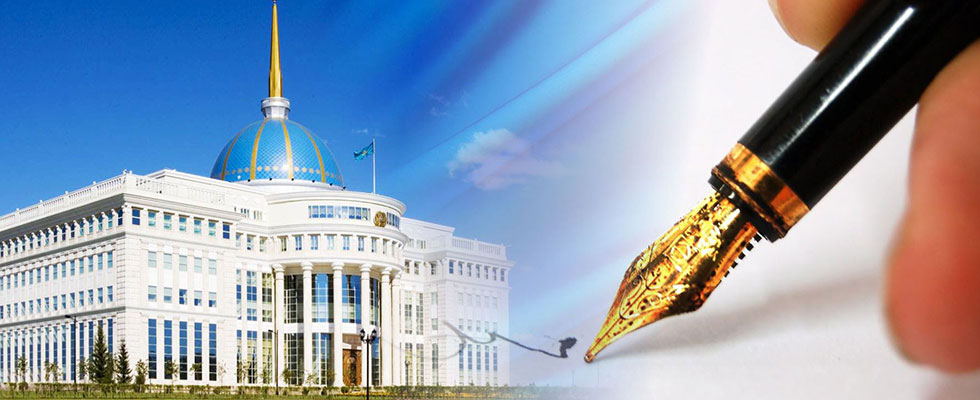
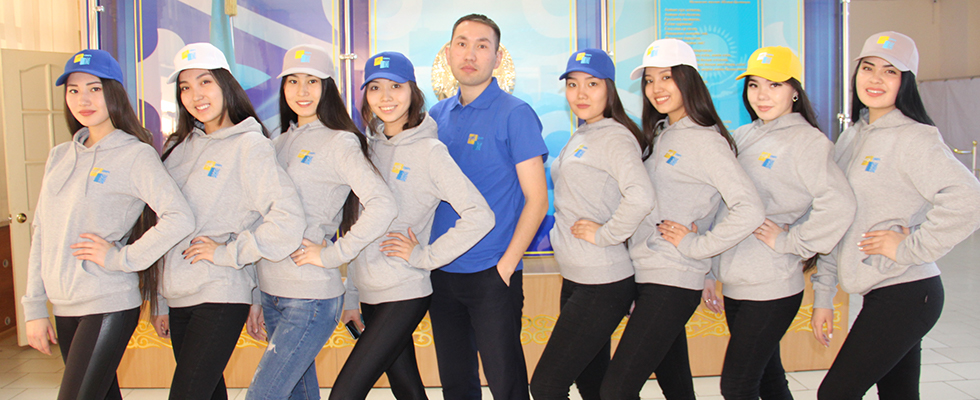
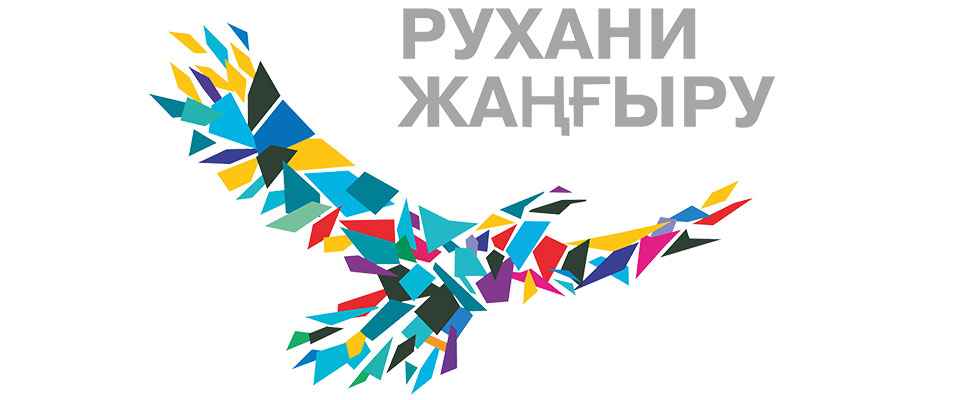
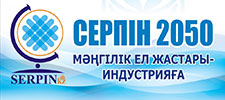
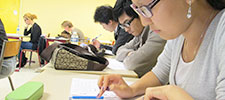







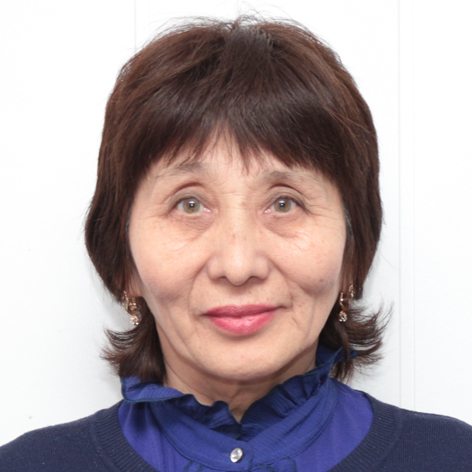
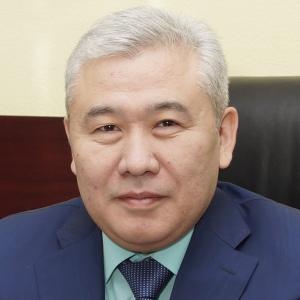
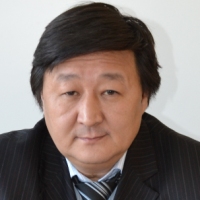
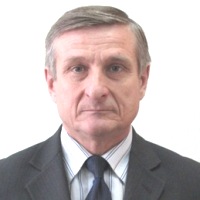
 Общая информация
Общая информация